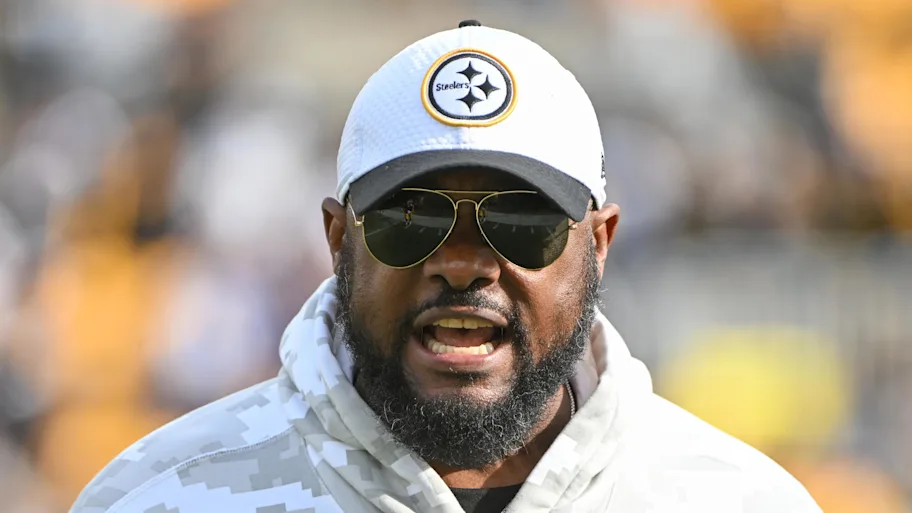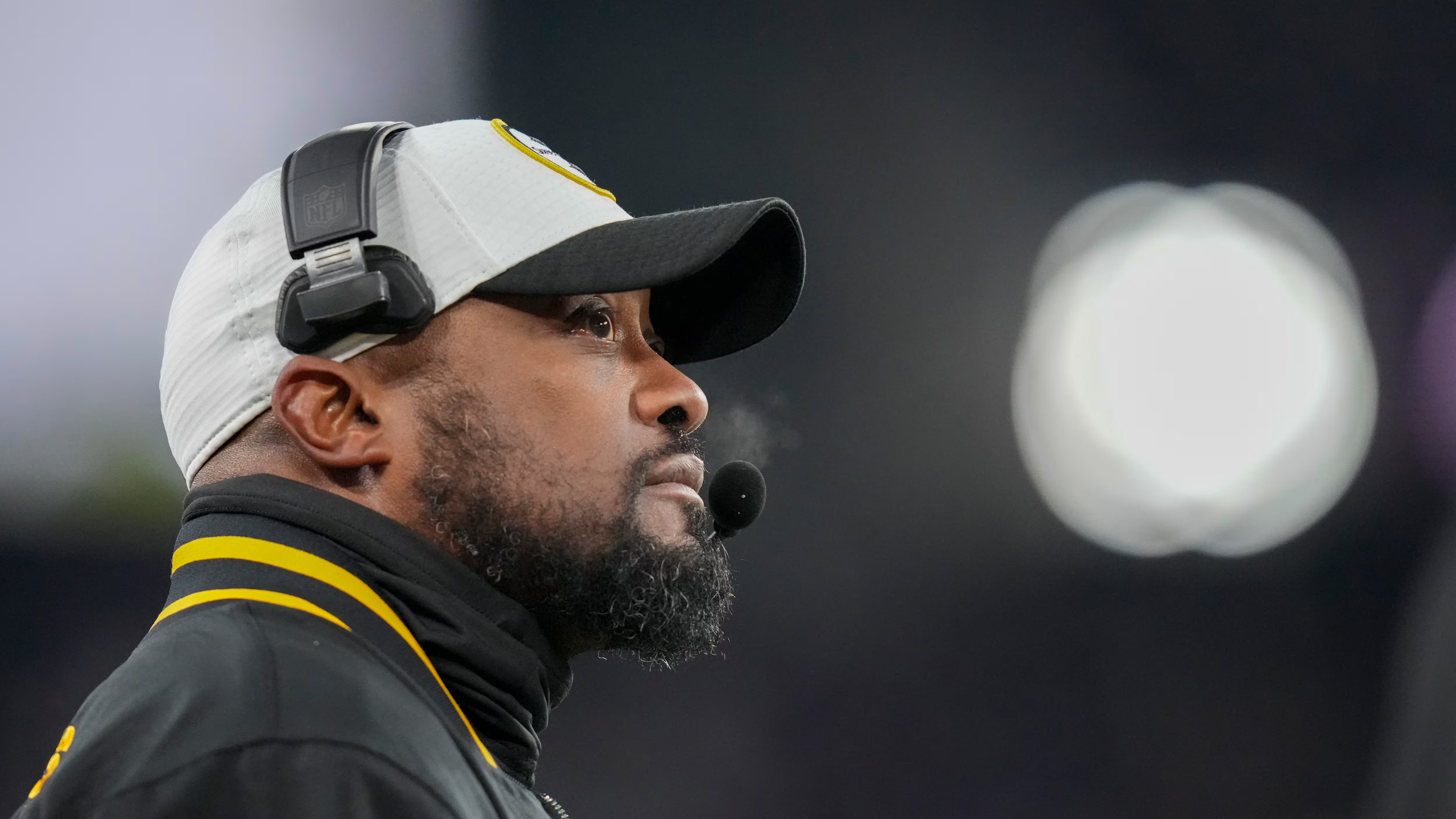
In the world of professional football, some coaches shape the future of their teams, leaving a lasting legacy. One such coach is Mike Tomlin, the head coach of the Pittsburgh Steelers. With a career that spans over a decade, Tomlin has solidified himself as one of the NFL’s premier head coaches. Known for his leadership, adaptability, and tactical brilliance, Mike Tomlin’s influence has been felt both on and off the field.
This article takes a deep dive into the career of Mike Tomlin, exploring his early life, coaching journey, key achievements, and what makes him stand out as a head coach in the NFL.
Early Life and Career
Mike Tomlin was born on March 15, 1972, in Hampton, Virginia, where his love for football began at an early age. Growing up in a sports-centered household, Tomlin’s father, who served in the military, instilled the values of discipline and hard work in him. Tomlin attended Denbigh High School in Hampton, where he was an outstanding athlete, excelling in football and track.
After high school, Tomlin continued his football journey at The College of William & Mary, where he played wide receiver for the school’s football team. Although he wasn’t drafted into the NFL, Tomlin’s experiences at William & Mary helped shape his understanding of the game. His playing career was short-lived, but it provided him with invaluable knowledge and insight that would later benefit him as a coach.
The Rise to NFL Coaching
Mike Tomlin’s coaching journey began after he finished his playing career. His first job in coaching was as a defensive backs coach for Virginia Military Institute in 1995. From there, he worked his way up the coaching ladder, gaining experience at multiple colleges and NFL teams. Tomlin’s talent as a coach was evident early on, as he quickly earned a reputation for his defensive expertise and leadership abilities.
His big break came in 2001 when Tomlin joined the Tampa Bay Buccaneers under head coach Tony Dungy. As the team’s defensive backs coach, Tomlin played a key role in the Buccaneers’ defense, helping to solidify the unit as one of the best in the NFL. In 2003, the Buccaneers finished the season with the #1 ranked defense in the league, a feat that earned Tomlin widespread recognition.
In 2006, Tomlin’s coaching prowess caught the attention of the Minnesota Vikings, who hired him as their defensive coordinator. In his one season with the Vikings, Tomlin turned the team’s defense into one of the top units in the NFL, which further boosted his profile. It was clear that Tomlin had what it took to lead an NFL team.
Becoming the Head Coach of the Pittsburgh Steelers

In 2007, Mike Tomlin was hired as the head coach of the Pittsburgh Steelers. At just 34 years old, Tomlin became one of the youngest head coaches in NFL history. Despite his age and limited head coaching experience, Tomlin was hired to succeed Bill Cowher, who had led the Steelers to a Super Bowl victory in 2005.
From the moment Tomlin took the helm of the Steelers, he displayed a deep understanding of the game and a clear vision for the team. His leadership style was a perfect fit for the Steelers’ tough, physical brand of football. Tomlin instilled discipline, a strong work ethic, and an emphasis on mental toughness in his players.
Key Achievements and Milestones
Mike Tomlin’s tenure with the Pittsburgh Steelers has been marked by numerous achievements, solidifying his place as one of the NFL’s elite coaches. Here are some of the key milestones and accomplishments from his career:
1. Super Bowl XLIII Victory
One of the most significant achievements of Tomlin’s career came in 2009 when the Pittsburgh Steelers won Super Bowl XLIII. Tomlin’s team defeated the Arizona Cardinals 27-23 in a thrilling game that came down to the final minutes. The victory marked Tomlin’s first Super Bowl win as head coach, and he became the youngest head coach in NFL history to win a Super Bowl at the time.
The win was a testament to Tomlin’s leadership and ability to manage a high-pressure situation. Under his guidance, the Steelers’ defense, led by players like James Harrison and Troy Polamalu, played an integral role in securing the championship.
2. Consistent Playoff Appearances
Since taking over as head coach, Mike Tomlin has maintained a consistent level of success. He has led the Steelers to 10 playoff appearances, making the postseason in over half of his seasons as head coach. Tomlin has consistently kept the Steelers competitive in a tough AFC North division, earning the respect of his peers and the admiration of fans.
3. Pittsburgh Steelers’ Defensive Prowess
Known for his defensive expertise, Tomlin has developed a reputation for building strong defensive units. The Steelers’ defense, under Tomlin’s leadership, has been one of the most formidable in the NFL. Players like T.J. Watt, Cameron Heyward, and Joe Haden have flourished in Tomlin’s system, making the defense a cornerstone of the team’s identity.
4. A Legacy of Stability
Another defining feature of Tomlin’s coaching career is his ability to provide stability to the Steelers. He became only the second head coach in the team’s history to have a tenure of over 15 years, joining the legendary Chuck Noll. Tomlin’s consistent performance year after year has made him one of the longest-tenured and most respected head coaches in the NFL.
Coaching Style and Philosophy

Mike Tomlin’s coaching style revolves around discipline, accountability, and mental toughness. He is known for being direct with his players, holding them accountable for their actions both on and off the field. Tomlin emphasizes the importance of preparation, attention to detail, and staying focused throughout the course of the season.
1. Leadership and Communication
Tomlin’s leadership style is often described as straightforward and no-nonsense. He fosters an environment where players feel empowered to take ownership of their actions but also ensures that everyone is working toward a common goal. His ability to motivate and communicate effectively with players has helped him build strong relationships with the team.
2. Defensive Expertise
As a defensive coach, Tomlin has a keen understanding of how to build and execute a successful defensive game plan. His defenses are known for their physicality, aggressiveness, and ability to force turnovers. Tomlin’s emphasis on defense has been a hallmark of his coaching career, and he continues to develop some of the league’s top defensive units.
3. Adaptability and Flexibility
While Tomlin is known for his defensive prowess, he is also a coach who understands the evolving nature of the NFL. He has adapted his coaching style to meet the demands of the modern game, balancing traditional hard-nosed football with the need for offensive innovation. His adaptability has allowed the Steelers to remain competitive in an ever-changing league.
Frequently Asked Questions (FAQs)
1. How long has Mike Tomlin been the head coach of the Pittsburgh Steelers?
Mike Tomlin has been the head coach of the Pittsburgh Steelers since 2007, making him the longest-tenured coach in the team’s history.
2. How many Super Bowls has Mike Tomlin won?
Mike Tomlin has won one Super Bowl with the Pittsburgh Steelers, which was Super Bowl XLIII in 2009.
3. What is Mike Tomlin’s coaching philosophy?
Mike Tomlin’s coaching philosophy is built on discipline, accountability, and mental toughness. He emphasizes preparation, attention to detail, and communication with his players.
4. What is Mike Tomlin’s coaching record?
As of the 2024 season, Mike Tomlin has a career regular-season coaching record of 154-85, along with a significant number of playoff appearances.
5. Has Mike Tomlin ever had a losing season?
No, Mike Tomlin has never had a losing season as the head coach of the Pittsburgh Steelers, which is a remarkable achievement that sets him apart from many other NFL coaches.
Conclusion
Mike Tomlin’s career as the head coach of the Pittsburgh Steelers has been defined by success, consistency, and leadership. His remarkable achievements, including a Super Bowl victory and numerous playoff appearances, highlight his ability to guide his teams through both triumph and adversity.
With his strong coaching philosophy, defensive expertise, and ability to adapt to the modern game, Tomlin continues to be one of the most respected and accomplished coaches in the NFL. As he continues to lead the Steelers, Mike Tomlin’s legacy as one of the greats in NFL history is firmly cemented.







